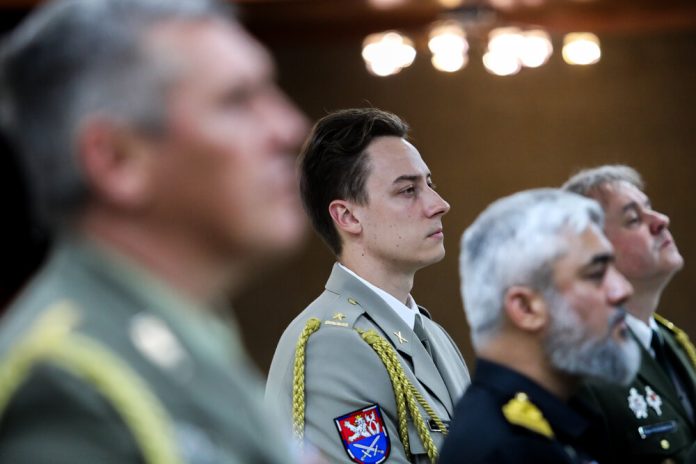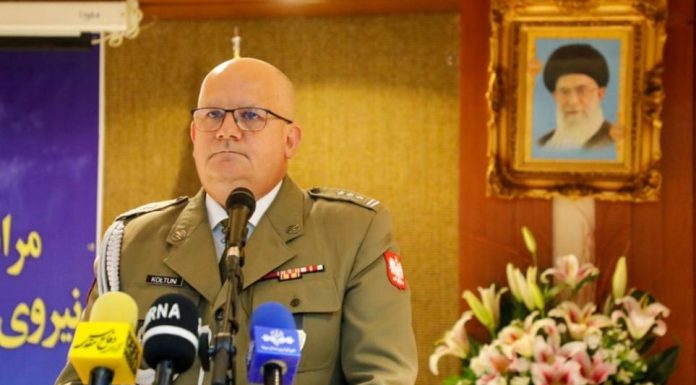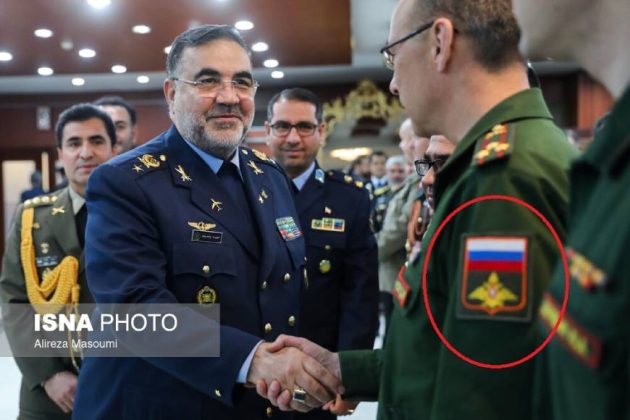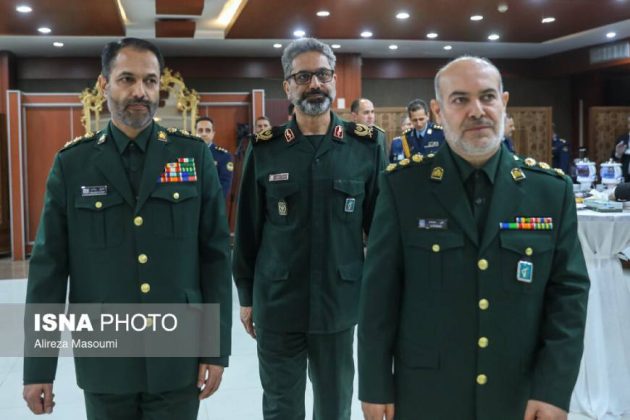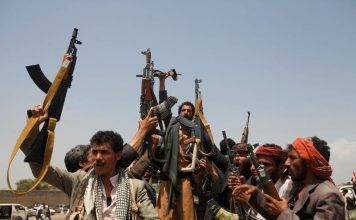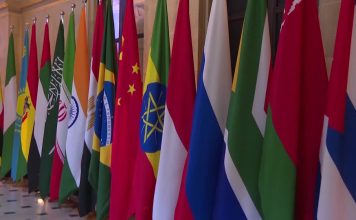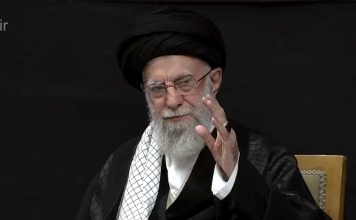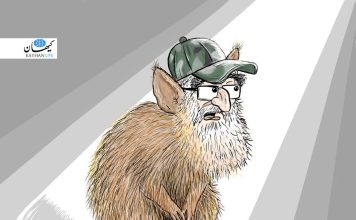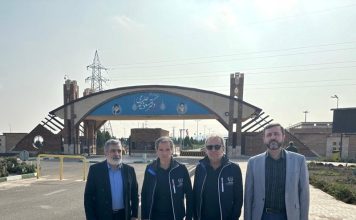Feb. 25 will mark the second anniversary of Russia’s military invasion of Ukraine.
As concerns grow over Russian President Vladimir Putin’s potential military aggression towards other Eastern European countries, representatives from several NATO European member states, commanders of the Islamic Revolutionary Guard Corps (IRGC), and Russian military officials attended a ceremony on Feb. 15 in Tehran to commemorate the 45th anniversary of the Islamic Revolution.
The presence of NATO representatives at the ceremony, hosted at the Iranian Army’s Airforce hotel near the abandoned “Doshan Tapeh Airbase,” must have shocked Ukrainian soldiers who have been engaged in fierce battles against Russian invaders for the past two years.
Brigadier-General Hamid Vahedi, the Commander of the Iranian Army’s Air Force, presided over the ceremony, which several diplomats and military representatives from foreign embassies and IRGC commanders attended.
Although Turkey is a NATO member, its representatives attending the ceremony did not cause any concerns, given that it has a long history of military ties with Iran. However, the presence of military attaches of the Czech Republic and Poland, both NATO members, at the ceremony raised some eyebrows.
When both Ukrainian authorities and Western governments have repeatedly stated that the Islamic Republic, particularly the IRGC, is backing the killing of Ukrainian citizens and aiding Russia’s assault on the country’s economic infrastructure through the deployment of suicide drones, representatives from two European NATO member states attending the ceremony were an affront to the Ukrainian people.
Even more shocking was Polish Colonel Sławomir Kolton, the head of the Association of Polish Military Dependents living in Iran, praising the Islamic Republic’s defense industry at the event.
Colonel Kolton said: “Iran’s defense industry is recognized as a significant player in the global production of drones. This capability has positioned Iran to potentially contribute more effectively to regional stability and security, particularly if it uses its drone technology and air force with peaceful intentions.”
Colonel Kolton expressed his firm belief that the Islamic Republic, “a significant country with a wealth of experience in warfare and a sense of pride, has the potential not only to contribute to restoring stability in its region peacefully but also to influence peace processes globally.”
[aesop_image img=”https://kayhanlife.com/wp-content/uploads/2023/06/2023-06-08T090221Z_694272162_RC2XE1AH92GY_RTRMADP_3_IRAN-MISSILE-HYPERSONIC.jpg” panorama=”off” align=”center” lightbox=”on” captionsrc=”custom” caption=”A billboard with a photo of a new hypersonic ballistic missile called ‘Fattah’ and with text reading ‘400 seconds to Tel Aviv’ is seen on a building in Tehran, Iran June 8, 2023. REUTERS./ ” captionposition=”left” revealfx=”off” overlay_revealfx=”off”]
While Colonel Kolton was commending the military industry of the Islamic Republic during the ceremony in Tehran, miles away, Polish Defense Minister Władysław Kosiniak-Kamysz was cautioning that his country should be prepared for the potential threat of a war with Russia.
In an interview with the Warsaw-based tabloid Super Express, Minister Kosiniak said: “I consider every scenario. A defense minister must consider even the worst-case scenario. This is where we are now.”
In the same context, Czech President Petr Pavel predicts “significant developments” in Moscow’s full-scale invasion of Ukraine in 2024, a prospect that Kyiv finds alarming. However, for soldiers on the front lines battling against Russia, hearing the words of the Czech president, a retired general, former head of the NATO Military Committee, and a staunch supporter of Ukraine could be disheartening.
Czechs Extradite Suspect in Iran Regime-Backed Murder Plot to United States
For all his support for Ukraine, General Pavel and others must explain why the military attaché of the Czech Embassy is standing next to the commanders of the IRGC and Russian representatives in Tehran.
Given the allegations that the Islamic Republic is collaborating with Russia to use deadly suicide drones against Ukrainian people, it is understandable that senior Ukrainian officials and President Volodymyr Zelenskyy may find themselves in a delicate position.
Criticizing their Czech counterparts could lead to questions about Ukraine’s official stance on the matter and the evidence supporting these severe claims against the Islamic Republic, given that Ukrainian officials had attended similar ceremonies in Iran in the past.
The sight of NATO member states’ officers in Tehran, alongside IRGC commanders, is unsettling for the Iranian populace, who have endured decades of oppression and lived under the constant threat of war.
Prominent opposition figures representing the Iranian people have consistently urged European democracies to intensify pressure on the Islamic Republic by recalling their ambassadors from Tehran and expelling Iranian diplomats. Surprisingly, they have not capitalized on the Russian aggression to strengthen their demands, despite the Islamic Republic’s implicit involvement in Russia’s war that has resulted in the deaths and injuries of over half a million people in Ukraine.

